Check that there is continuity between the slip rings (A).
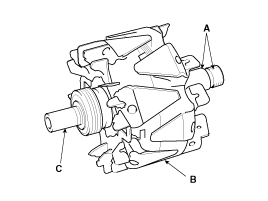
Check that there is continuity between the slip rings (A).

Check that there is no continuity between the slip rings and the rotor (B) or rotor shaft (C).
If the rotor fails either continuity check, replace the alternator.
Check that there is continuity between each pair of leads (A).
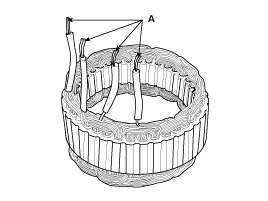
Check that there is no continuity between each lead and the coil core.
If the coil fails either continuity check, replace the alternator.
When using a new belt, first adjust the deflection or tension to the values for the new belt, then readjust the deflection or tension to the value for the used belt after running engine for five minutes.
Apply a force of 98N (10kg, 22lb), and measure the deflection between the alternator and the water pump pulley.
Deflection
Used belt: 4.2 ~ 4.7 mm (0.1654 ~ 0.1850 in)
New belt: 3.3 ~ 3.7 mm (0.1299 ~ 0.1457 in)
If the belt is worn or damaged, replace it.
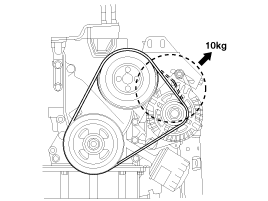
Attach the belt tension gauge to the belt and measure the tension. Follow the gauge manufacturer's instructions.
Tension
Used belt: 392.3 ~ 490.3N (40 ~ 50kg, 88.2 ~ 110.2lb)
New belt: 637.4 ~ 735.5N (65 ~ 75kg, 143.3 ~ 165.3lb)
If the belt is worn or damaged, replace it.
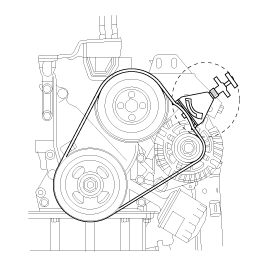
Loosen adjusting bolt (A) and the lock bolt (B).
Move the alternator to obtain the proper belt tension, then retighten the nuts.
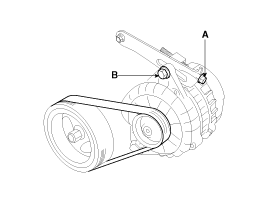
Recheck the deflection or tension of the belt.
For the power steering pump belt and A/C compressor belt adjustments, refer to ST group - power steering pump and HA group - air compressor.